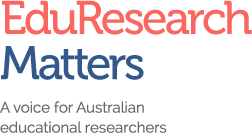Every year, thousands of new teachers step into Australian classrooms full of passion and preparation. But many feel unprepared for one of the most complex aspects of the job: designing and delivering assessment.
Assessment drives teaching, informs reporting, and defines student success. Yet universities often don’t teach future teachers how to create assessments. Schools expect them to learn “on the job” — sometimes with little support, inconsistent mentoring, or recycled task sheets. This isn’t just an oversight. It’s a systemic issue that affects teacher wellbeing, teaching quality, and student outcomes.
In my doctoral research, I surveyed 116 early career secondary teachers across Queensland. Their responses tell a story we need to hear — not just as educators, but as a system that expects teachers to uphold quality and equity while often failing to support them in doing so.
“Thrown in the deep end”
Some teachers said they had to write major assessments within their first term — even though no one had shown them how. Others said their schools re-used outdated tasks, leaving them with no chance to build the skill at all.
One teacher told me:
“I was expected to write a Year 11 exam in my first six weeks — but I’d never created an assessment, not even in prac.”
Another said:
“There’s no consistency. Some people get help, others just copy what’s been done before. It doesn’t feel like a professional process.”
These experiences weren’t outliers. Teachers in my study reported big differences in how much support they received, how confident they felt, and whether they even got to participate in assessment design.
When that support is missing, assessment becomes something done to teachers — not something they actively shape. That disconnect erodes professional identity and increases the likelihood of burnout, especially in high-pressure schools or senior subjects.
It’s about confidence — not just competence
Most teachers understood what good assessment looked like. They had the theoretical knowledge. But many lacked confidence — the belief that they could make sound professional decisions.
That matters. Assessment literacy rests on three key pillars:
- Competence — the knowledge and skills
- Opportunity — the chance to practise
- Confidence — the belief in your ability to decide and act
When one of these is missing, it becomes hard to create fair, valid, and meaningful assessments.
Confidence stood out as the weakest link. Even capable teachers felt hesitant, especially in high-stakes contexts like the senior years. They didn’t always trust themselves — and without that trust, they struggled to take ownership of assessment. One participant described being reluctant to suggest alternatives or raise concerns about task quality, even when they saw problems, simply because they feared being perceived as unqualified.
In other words, the issue wasn’t knowledge — it was voice.
Why it matters
Australia faces a teacher workforce crisis, and early career teachers leave at higher rates than any other group. Many factors drive this, including workload, policy pressure, and a lack of recognition. But feeling underprepared for the realities of classroom life plays a major role.
We can’t treat assessment as a “soft skill.” It shapes how students learn and what they can show. If we don’t support early career teachers to develop assessment literacy, we risk harming both teacher morale and student equity.
What’s more, a lack of assessment preparedness doesn’t just hinder early career teachers — it limits students. When assessments don’t reflect curriculum goals, learning becomes disconnected. When tasks are unclear or inequitable, students from already-marginalised backgrounds are disproportionately disadvantaged. Supporting teachers to design assessment well is not just about teacher growth — it’s about justice.
So, what can we do?
Here’s where we can start — and where my research suggests we need to act:
- Put assessment creation back into teacher education
Some universities dropped assessment design from their courses after national accreditation changes. We need to bring it back. Every graduate should leave with experience designing tasks, writing rubrics, and reviewing quality. This doesn’t have to mean standalone courses — it can be embedded across subjects and placements. But it must be deliberate, structured, and supported. - Make assessment part of induction and mentoring
Schools tend to focus mentoring on behaviour or curriculum. But assessment matters too. New teachers need support to co-design tasks, get feedback, and reflect with more experienced colleagues. Structured conversations about assessment should be normalised — not left to chance or avoided due to time pressure. When we foreground assessment, we also elevate professional dialogue and reflection. - Use shared tools — but not as checklists
I developed a set of quality indicators for teacher-created assessment: valid, reliable, fair, authentic, and flexible. These indicators of effective assessment can guide professional conversations and reflection when used as tools for growth — not just compliance. They’re not about ticking boxes. They’re about building a common language and helping teachers feel equipped to ask: “Is this good? Why? What would make it better?” - Treat confidence as a goal, not a given
We need to stop saying “they just aren’t ready” and instead support teachers to develop their identity and voice. Confidence isn’t arrogance — it’s a sign of professionalism. We can build it through trust, feedback, and shared practice. Research into collaborative professional development models shows that when teachers feel confident, they act with more purpose, advocate more strongly for learners, and remain in the profession longer.
Looking forward
Teaching is skilled, relational, and dynamic work. Assessment design sits at the heart of that work — not on its margins.
If we want early career teachers to stay, grow, and thrive, we need to treat assessment design as core business. That means making it visible, valued, and well-supported — in universities, in standards, and in schools.
Preparedness isn’t just about knowing the content. It’s about having the confidence, the opportunity, and the belief that you’re not doing this work alone.

Nicole Brownlie is a teacher educator and researcher at the University of Southern Queensland. Her work explores teacher development, assessment literacy, and early career transitions. Her recent doctoral research investigated how early career teachers in Queensland understand, create, and reflect on summative assessment. You can find her on LinkedIn.







How about quality curriculum materials being developed for teachers to deliver. Teachers should be skilled in diagnosis and delivery. Can you imagine doctors developing their own drugs? We need to take the same approach with teachers and teaching.
Thanks for your comment Chris and I can see your point. I think it’s important to note that unlike illnesses, our classes of students are unique and therefore as teachers, we need to be able to adjust not only our approach to teaching, but also our approach to assessment to allow each cohort to best demonstrate their knowledge, skills and understanding. If we don’t understand the basic principles underlying quality assessment creation, we will not be able to support our students in the best way possible. So although quality curriculum materials are so important and useful, teachers need to understand the process behind the creation of them so they can, at the very least, modify them to best suit the students in their care.
I did a course on assessment at USQ from their teaching degree. If such training is not required of teachers for registration, then the fault is with accreditation bodies.
Hi Tom,
I completely agree with you that this is an accreditation bodies issue. Thankfully, as you know from doing our assessment course, UniSQ does teach creation of assessment as well as the required interpretation and use of assessment; however, my point was certainly a wider concern. If universities are not required to teach this skill, with such a crowded curriculum, this very important skill may get lost. It is imperative that we bring back the explicit teaching of creating effective assessment into initial teacher education. Perhaps we may see this with the roll out of the new APSTs next year?